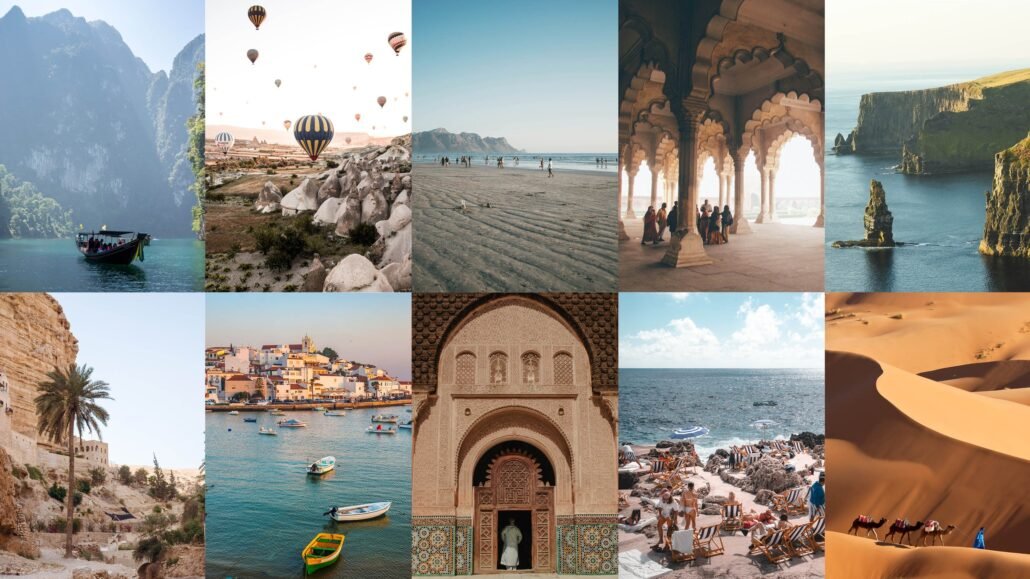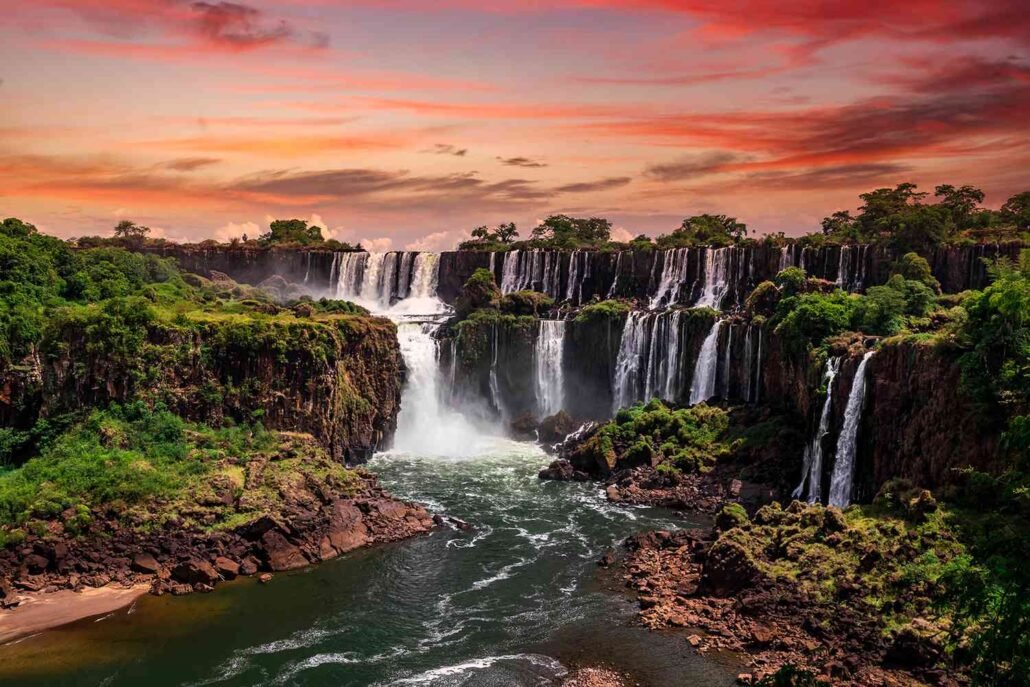Travel smartly by packing light and staying flexible with your plans. Protect your essentials by keeping copies of important documents.
Embarking on a journey, whether it’s for leisure or business, calls for preparation and savvy strategies to safeguard your experience against common travel pitfalls. Efficient packing tops the list of travel tips, ensuring you carry only what you need to maximize mobility and avoid extra baggage fees.
Staying adaptable allows you to navigate unexpected changes or take advantage of spontaneous opportunities. Keeping your travel documents secure, and accessible is paramount—a lost passport or ticket can derail your entire trip. By embracing these travel practices, you create a framework for a smoother, more enjoyable adventure. Remember, prepared travelers are those who can embrace the ebb and flow of their journeys with ease and confidence.
Travel Tips: Essential Hacks For Stress-free Adventures
Planning ahead is a crucial step for a stress-free journey. Knowing the travel style that suits you best enhances the overall experience. For instance, some travelers prefer luxury accommodations, while others enjoy backpacking and hostels. Each requires a unique approach to planning.
Thorough research of the destination provides valuable insights into culture, weather, and attractions, allowing for a more customized itinerary. This preparatory step can help avoid common pitfalls and ensure that essential experiences aren’t missed.
To ensure nothing important is forgotten, a packing checklist is indispensable. It streamlines the process and ensures key items are included. Meanwhile, travel apps have become vital tools in maintaining organization and keeping all travel details in one accessible place. They can assist in everything from flight tracking to local navigation.
Efficient Packing Strategies
Efficient Packing Strategies necessitate meticulous selection of luggage. Opt for versatile, durable, and lightweight options that can withstand a variety of travel demands.
The clothes rolling vs. folding debate continues amongst seasoned travelers. Rolling can minimize wrinkles and save space, while folding may be preferred for more structured garments. Experiment with both to determine which suits your packing style and clothing types best.
- Space-saving accessories, such as compression bags, can drastically reduce the volume of your packed items.
- Don’t underestimate the importance of a travel essentials kit; it should include all your must-have items in a small, accessible bag.
- Employing packing cubes and organizers is a strategic approach to compartmentalize and effortlessly locate your belongings throughout your journey.
Money-saving Methods For Travel
Traveling during the off-season can drastically reduce your expenses. Tourist hotspots are less crowded, and prices for accommodations can be significantly lower. Consider alternate lodging options such as bed-and-breakfasts, hostels, or vacation rentals for a more authentic and cost-effective stay.
Utilize incognito browsing when looking for flights to avoid potential price hikes based on your search history. Establishing a daily budget helps in tracking your expenses and prevents overspending. Emphasize the importance of a budget to maintain financial control.
Lastly, signing up for loyalty programs and using travel rewards offered by credit cards or airlines can lead to significant savings on future travel. Accumulate points and miles to redeem for flights, hotel stays, or upgrades. These programs often come with additional perks such as priority boarding or airport lounge access.
Navigating Transportation Like A Pro
Navigating the complex world of transportation while traveling can truly elevate your experience. Opting for public transport can not only be economical, but it also offers an authentic glimpse into local life. On the other hand, car rentals provide privacy and flexibility to explore at your own pace. Seasoned travelers often mix and match these options depending on the destination’s infrastructure.
Walking and cycling tours are fantastic ways to explore a city’s nooks while staying fit. They can give you access to areas less-traveled, offering a more intimate experience.
Utilizing apps for route planning can save you time and prevent hassles. These apps provide real-time updates on various modes of transport, helping you make informed decisions. Furthermore, get acquainted with local traffic laws to avoid fines and ensure safety.
Airport efficiency can start your trip on the right foot. Tips like checking in online, being aware of peak traffic times, and utilizing priority lanes can significantly reduce waiting times. Remember to download and use the airport’s official app for live updates on gate changes and security wait times.
Staying Healthy And Safe
Securing travel insurance is a critical step in planning your journey, offering peace of mind and protecting against unforeseen events. Policies vary, but ensure yours includes coverage for medical expenses, trip cancellations, and lost luggage. A robust first-aid kit is non-negotiable, equipped with antiseptics, bandages, pain relievers, and any personal medication – indispensable for addressing minor injuries or ailments on the go.
Exercising caution with food and water is paramount to avoid illness; opt for fully cooked meals and bottled water in regions where sanitation is questionable. Safeguarding your valuables can be as simple as using luggage locks and keeping copies of important documents in separate locations. Lastly, managing hydration levels and adjusting sleep patterns pre-flight can significantly reduce jet lag impact, ensuring you remain energized throughout your travels.
Tech Tips For The Modern Traveler
Traveling in the modern era requires not just packing essentials, but also ensuring connectivity and power. Carrying a portable power bank is essential as it guarantees that devices stay charged during long flights or day trips where power outlets are scarce. It’s a traveler’s lifeline to their mobile world, especially when capturing memories or navigating unknown territories.
Explorers should leverage the convenience of offline maps and translation tools to avoid getting lost or facing language barriers. These tools can prove invaluable in areas with limited internet access, helping travelers navigate and communicate with ease.
Understanding data roaming can save hefty charges; alternatively, purchasing a local SIM card upon arrival offers a cost-effective solution for staying connected. It’s not only about saving money but also experiencing seamless internet connectivity.
Backing up photos and documents is crucial to not lose precious memories or important information. Cloud services or external storage devices provide peace of mind, securing digital assets against loss or theft.
To keep electronics secure, consider using luggage locks and keeping devices with you at all times. Never underestimate the importance of safeguarding personal technology to prevent the derailment of your travel experience.
Cultural Etiquette And Interaction
Learning key phrases in the local language not only shows respect but can greatly enhance your travel experience. Try memorizing simple greetings, expressions of thanks, and common questions. This effort can lead to more meaningful interactions with residents and may open up opportunities that would otherwise be overlooked due to language barriers.
Being aware of the cultural dos and don’ts allows travelers to navigate social situations more gracefully. Researching local customs and traditions before arrival can prevent unintentional disrespect or misunderstandings. Some cultures have specific rules about dining, dressing, or even conversational topics, so a little knowledge can go a long way.
Respectful photography practices involve asking for permission before taking pictures of people or their property. Understand the significance and sensitivity around certain sites or community events and always adhere to photography rules.
When making local friends safely, it is key to trust your instincts and meet in public spaces. Engage in community events or use social platforms specifically designed for travelers and locals to connect.
For souvenir buying tips, support the local economy by purchasing from small shops and artisan markets. Verify the authenticity of the products and be mindful of the cultural significance and legality of items you intend to take home.
Staying Connected With Loved Ones
Maintaining communication with family and friends while traveling is crucial. WhatsApp and Skype are top contenders for free international messaging and calls. They offer a cost-effective way to stay in touch, provided you have a stable internet connection. With the prevalence of Wi-Fi hotspots, these apps are ideal for travelers seeking to share updates or have face-to-face conversations.
To keep loved ones informed, setting up automated travel updates can be beneficial. Services like Google Trips can send itinerary changes to a list of pre-selected contacts. Similarly, social media platforms such as Facebook and Instagram make real-time sharing stress-free with features like location check-ins and live videos.
Navigating time zones doesn’t need to be a hassle. Tools like World Clock or Time Zone Converter assist in scheduling calls at suitable times for all parties. Finally, blogging platforms like WordPress or vlogging on YouTube enable travelers to share their journeys, offering a richer narrative of their adventures.
Implementing Eco-friendly Travel Habits
Implementing eco-friendly travel habits is essential for preserving the world’s natural beauty and ensuring its longevity. Leaving no trace during our journeys protects landscapes and wildlife, requiring us to be mindful of our impact and to carry out all waste. Choosing sustainable travel options, like biking, walking, or using public transport, greatly lessens our environmental footprint.
Travelers have the power to positively influence the areas they visit by supporting local economies. This can be achieved by purchasing goods and services from local businesses, which helps retain cultural heritage and boosts community development. Additionally, travelers can take steps to minimize plastic use by opting for reusable containers and bags, thereby reducing the amount of harmful plastics that often end up in natural settings.
| Strategy | Action |
|---|---|
| Transportation | Use public transport, cycle, or walk |
| Accommodations | Stay in eco-friendly hotels or hostels |
| Shopping | Buy from local artisans and markets |
| Dining | Eat at restaurants that source locally-produced food |
| Carbon Footprint Reduction | Offset emissions through carbon credits or conservation contributions |
Frequently Asked Questions On Travel Tips
What Are The Do’s And Don’ts Of Travelling?
Do’s of Traveling: Research destinations, pack essentials, respect local customs, secure travel insurance, and stay hydrated. Don’ts of Traveling: Ignore safety, overpack, flaunt valuables, skip travel advisories, or disrespect cultural norms.
What Are The Best Travel Hacks?
Pack light to save on luggage fees and ease mobility. Book flights in incognito mode to find lower fares. Stay in centrally located accommodations to cut transportation costs. Utilize travel credit cards for rewards and benefits. Always have a portable charger for your devices.
How Can I Be A Better Traveler?
To become a better traveler, research your destination thoroughly, respect local customs, travel light, engage with locals, and prioritize ecological impact by practicing sustainability.
How Do You Travel Like A Pro?
Travel like a pro by planning ahead, packing smart, staying organized, embracing local culture, and remaining adaptable. Prioritize essentials to navigate trips effortlessly, ensuring a seamless travel experience.
Conclusion
Exploring new places brings joy and unforgettable memories. Smart packing, safety measures, and cultural respect go a long way. Remember these travel tips to enhance your adventures. Let’s embrace the journey’s beauty with savvy planning! Ready for takeoff? Your next destination awaits.



